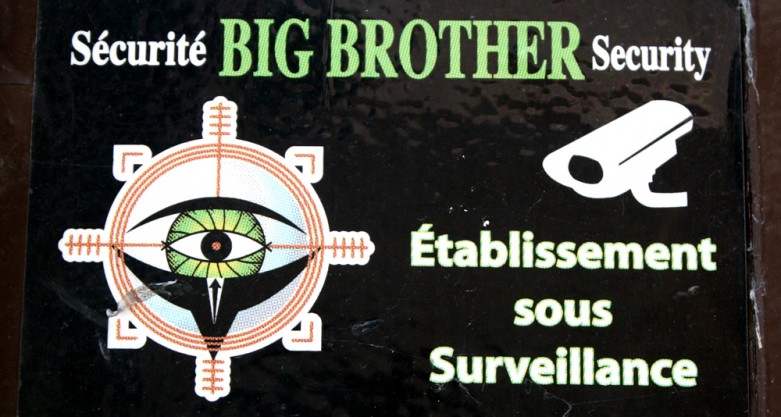
Big Brother Is Not Your 'Friend'
The U.S. government has increasingly shown an intense desire to “friend” you, to “follow” you, to get to know your every online move.
Now members of the House of Representatives are channeling that desire into legislation that clears a path for authorities to work with companies like AT&T, Facebook and Google to snoop on Internet-using Americans.
The Cyber Intelligence Sharing and Protection Act (CISPA) is wending its way through Congress, where it could get a favorable vote unless elected representatives hear their constituents' concerns in time.
That’s why a coalition of online rights advocates, including the Free Press Action Fund, have joined forces to kill CISPA before more of our online rights are lost to those seeking to turn the Internet into a massive surveillance complex.
Promoted as a way to protect our national interests against a loosely defined horde of cyber-terrorists, CISPA goes far beyond its stated purposes, sacrificing almost all of our online privacy rights without any safeguards against abuse. And it's another example of how government and corporations craft restrictive Internet policy without giving the public a seat at the table. Will they never learn?
Groups including Access, the American Civil Liberties Union, the American Library Association, Avaaz.org, the Center for Democracy and Technology, the Electronic Frontier Foundation and the Free Press Action Fund have just launched “Stop Cyber Spying Week” to demonstrate that the online rights of millions of Americans are not negotiable. In addition to helping Americans contact Congress, these groups have unleashed the power of Twitter against any legislator weighing a vote for this bad bill.
The folks behind CISPA claim that national security interests make CISPA-style surveillance necessary, but the bill's language is so vague and overreaching that it opens the door to rampant abuse. Here’s what’s wrong:
- CISPA would allow companies and the government to bypass privacy protections and spy on your email traffic, comb through your text messages, filter your online content and even block access to popular websites.
- CISPA would permit companies to give the government your Facebook data, Twitter history and cellphone contacts. It would also allow the government to search your email using the vaguest of justifications — and without any real legal oversight.
- CISPA contains sweeping language that could be used as a blunt weapon to silence whistleblower websites like WikiLeaks and the news organizations that publish their revelations.
- CISPA would have a chilling effect on our ability to speak freely online by stoking fears that the National Security Agency — the same agency that has conducted "warrantless wiretapping" online for years — could come knocking.
CISPA could lead all too easily to governmental and corporate attacks on our digital freedoms. And while there is a real need to protect vital national interests from cyber attacks, we can’t do it at the expense of our rights.
Facebook, which supports CISPA, now counts more than 800 million users worldwide. It’s frightening to imagine a world where Mark Zuckerberg and his colleagues could act with impunity to help the U.S. government keep tabs on all of us.
The goal of Stop Cyber Spying Week is to get Congress to back away from this dangerous legislation. This is the time to speak out.
Photo by Flickr user quinn.anya